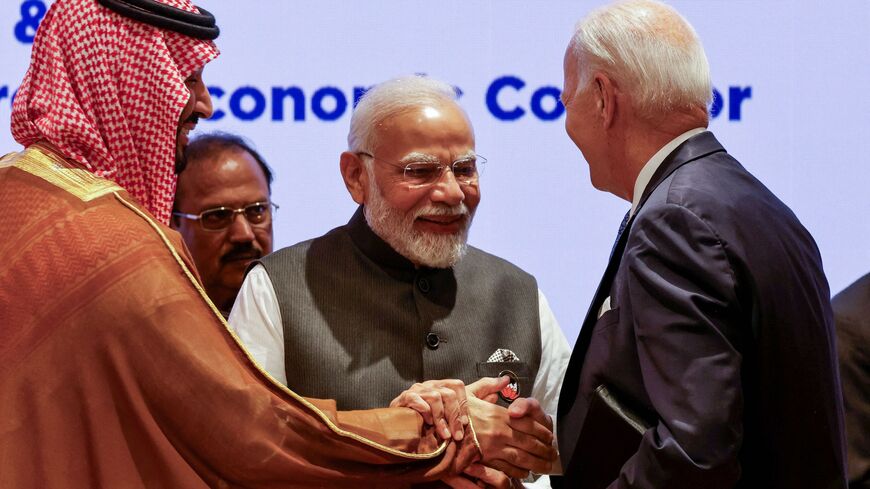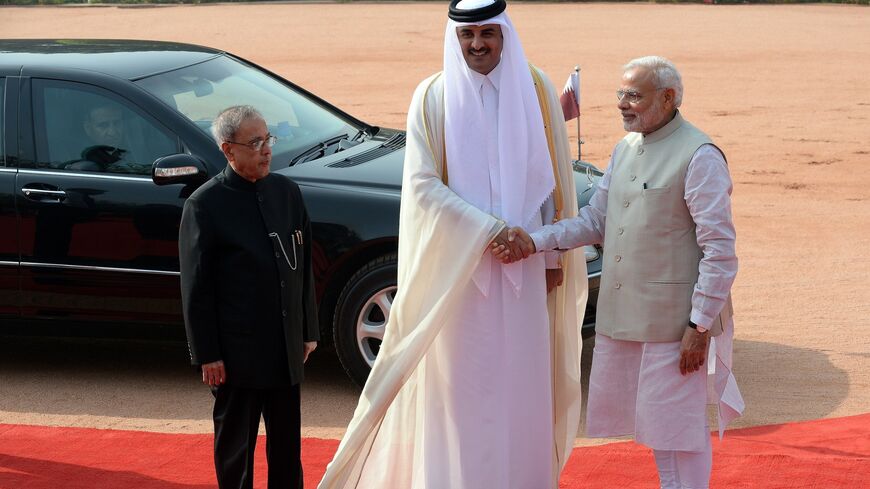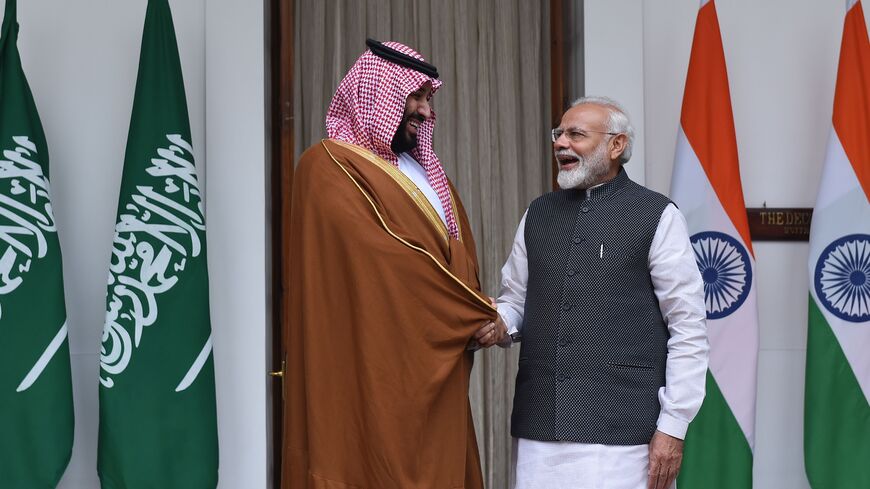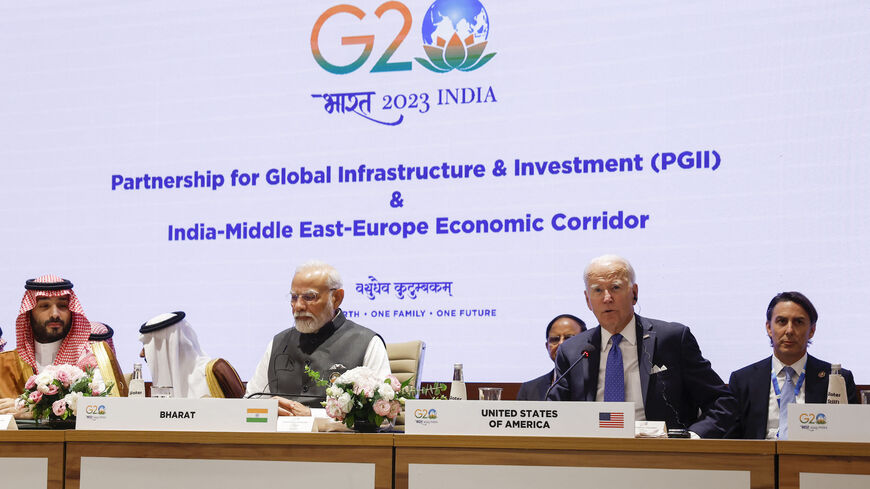Saudi's GCC-ASEAN summit: Toward an Asia minus China collective strategy
The GCC and ASEAN nations find themselves sharing more strategic commonalities amid the current era of deglobalization, geopolitical instability and economic uncertainties.
.jpg?h=294b0332&itok=Et16ViSG)
Thirteen leaders from the Gulf Cooperation Council (GCC) and the Association of Southeast Asian Nations (ASEAN) met Oct. 20 in Riyadh to set a road map for their cooperation amid the backdrop of the Israel-Gaza war and an increasingly uncertain regional security environment.
The summit is part of an emerging collective dubbed the "Asia minus China" strategy, which focuses on creating additional connectivity nodes and enhancing trade relations outside of China in order to reduce political risks associated with the Washington-Beijing standoff. In parallel, Riyadh’s role as host of the summit carries potent symbolism as Saudi Arabia continues to advance its position as a high-growth, high-potential G20 economy and ambitious global player.
In the current era of deglobalization, geopolitical instability and economic uncertainties, the GCC and ASEAN find themselves sharing more strategic commonalities. In the GCC countries, Saudi Arabia and the United Arab Emirates are diversifying their partnerships away from the West and pivoting further to the East, where the center of the emerging world order is shifting. In the ASEAN, Indonesia and Vietnam are pursuing their own pathways in this era of intense competition in the Indo-Pacific.
$6 trillion GDP
The combined gross domestic product of the GCC and ASEAN is approximately $6 trillion, with the potential to reach almost $53 trillion if they adopt a green growth strategy, capitalize on their dynamic population, embrace rapid urbanization and foster increased regional integration. This substantial economic strength significantly surpasses the current trade volume of $110 billion, providing strong incentives for both blocs to pursue economic integration across the Asian rimland. In a speech delivered at the beginning of the summit, Saudi Crown Prince Mohammed bin Salman said that exports from the GCC to ASEAN make up 9% of total Gulf exports, while imports from ASEAN to the Gulf comprise 6% of total imports. The two blocs may explore trade partnerships, promising significant collaboration in the months and years to come.
The Gulf states and ASEAN are also reevaluating their strategic positioning on China due to challenges related to the United States' decoupling or the European Union’s de-risking and geopolitical tensions in the Indo-Pacific, making border Asia less certain about its own future. The Asia Minus China Strategy, aimed at fostering broader integration between the Gulf and ASEAN to establish additional connectivity nodes outside China and reduce the political risk associated with Beijing, is gradually taking shape. The strategy seeks to build a cohort system of trade and commercial relations as well as pursue a third way in the ongoing US-China "cold war" that is shaping Asia and the broader international system.
Despite of Gaza
One of the most significant elements of the GCC-ASEAN summit is its timing. The fact that the two blocs are still meeting despite the ongoing Israel-Gaza war indicates that the Gulf states are insistent on not being sidetracked by the events and want to continue pursuing their strategic trajectory amid rising regional tensions. Amid their efforts to become transcontinental economic powers, GCC nations have prioritized expanding trade and diplomatic ties with Asian countries and, therefore, see a summit with ASEAN as an invaluable opportunity to set such goals in motion.
Among the member states of the GCC and ASEAN, Saudi Arabia and Indonesia stand as the main drivers of efforts to augment ties between the two groups. Bilateral trade between Indonesia and Saudi Arabia has been rising steadily over the past several years, with an average annual growth rate of 5% between 2018 and 2022. Indonesia has also enjoyed flourishing trade relations with the GCC more generally. In 2022, the volume of Indonesia’s trade with the GCC was $16 billion, a 25% increase from the previous year. Beyond economics and trade, Saudi Arabia and Indonesia are emerging as major rising powers within the G20 and share common views on the imbalances of the world order and the need for a more representative, multipolar civilizational order.
The GCC-ASEAN summit also builds on the recently announced India-Middle East-Europe Economic Corridor (IMEC), as the Gulf nations aim to position themselves as a connectivity node between Asia and Europe with respect to clean energy, trade and digital resiliency. By further integrating GCC and ASEAN countries, the Gulf states hope to create robust economic linkages that extend the benefits of IMEC even further east than India, and place countries like Saudi Arabia and the UAE firmly at the nexus of high-volume transcontinental commerce stretching from Tokyo to Berlin.
ASEAN and the GCC play a pivotal role in fostering trade and commercial relations, promoting greater integration among the littoral states of Asia, as a continental Asian order is gradually emerging.
Subscribe for unlimited access
All news, events, memos, reports, and analysis, and access all 10 of our newsletters. Learn more
Continue reading this article for free
Access 1 free article per month when you sign up. Learn more.
By signing up, you agree to Al-Monitor’s Terms and Conditions and Privacy Policy. Already have an account? Log in







